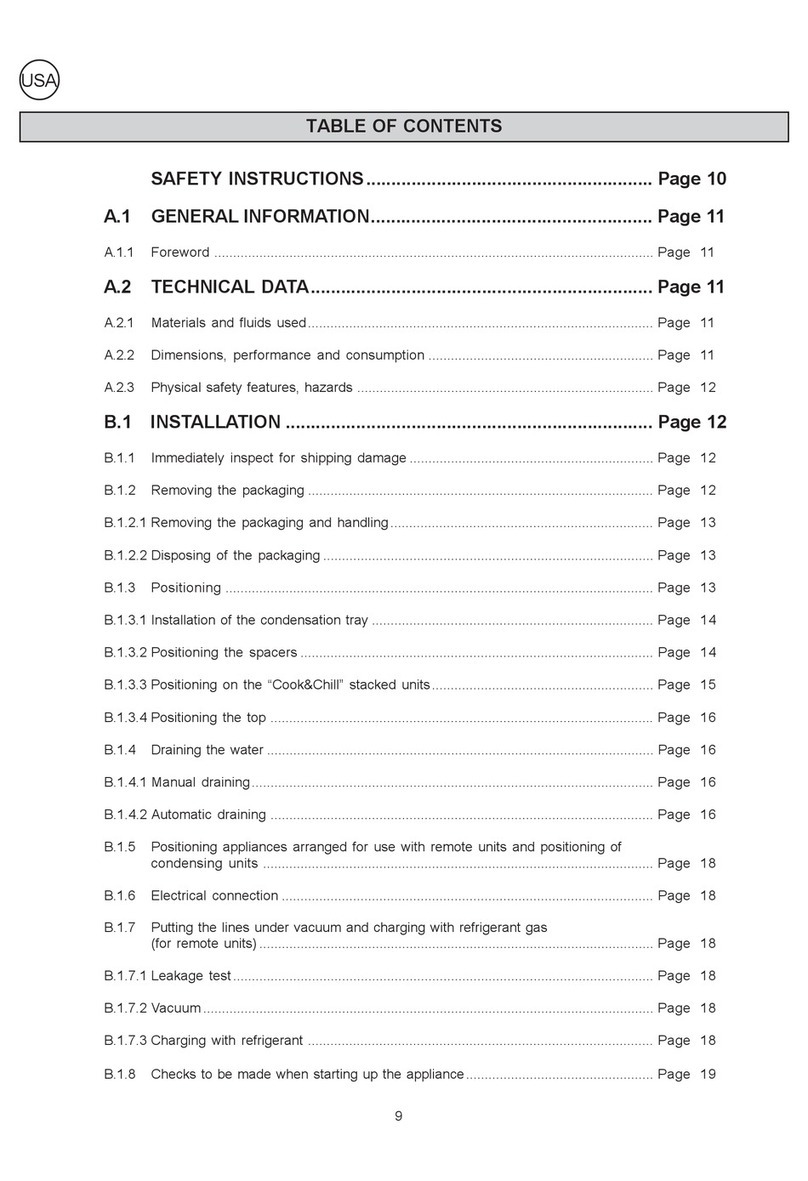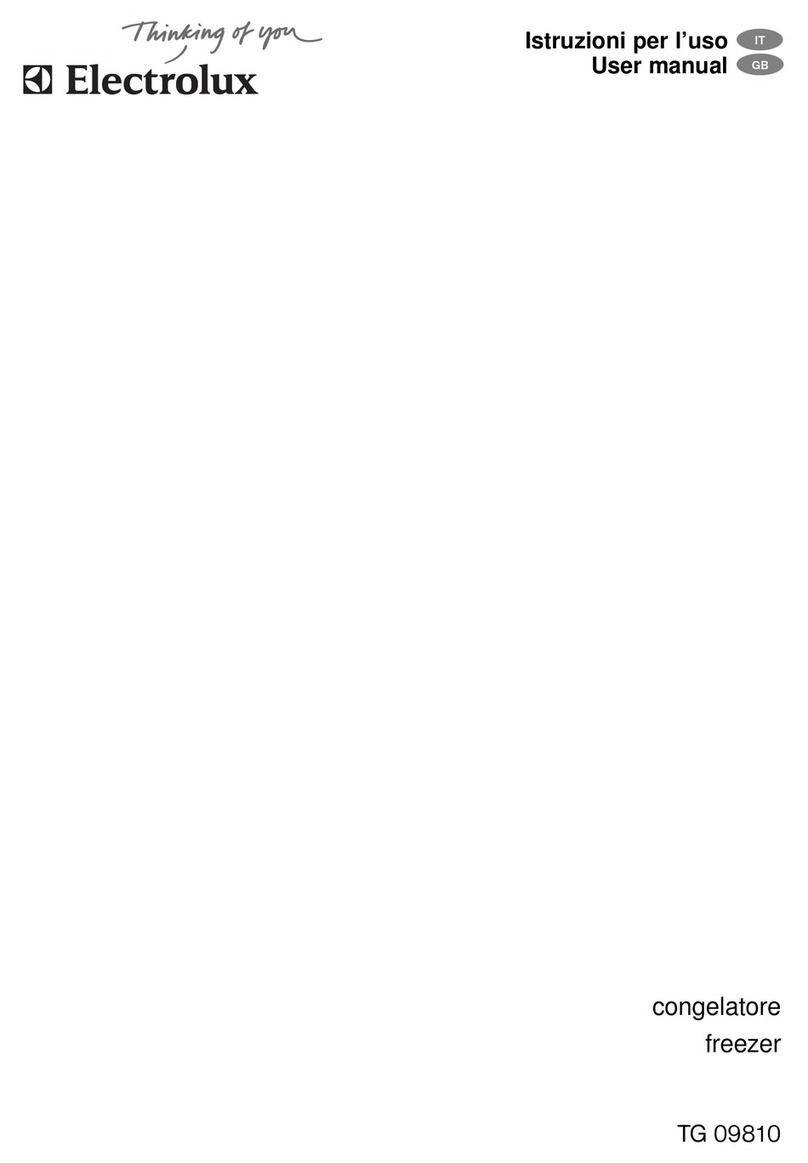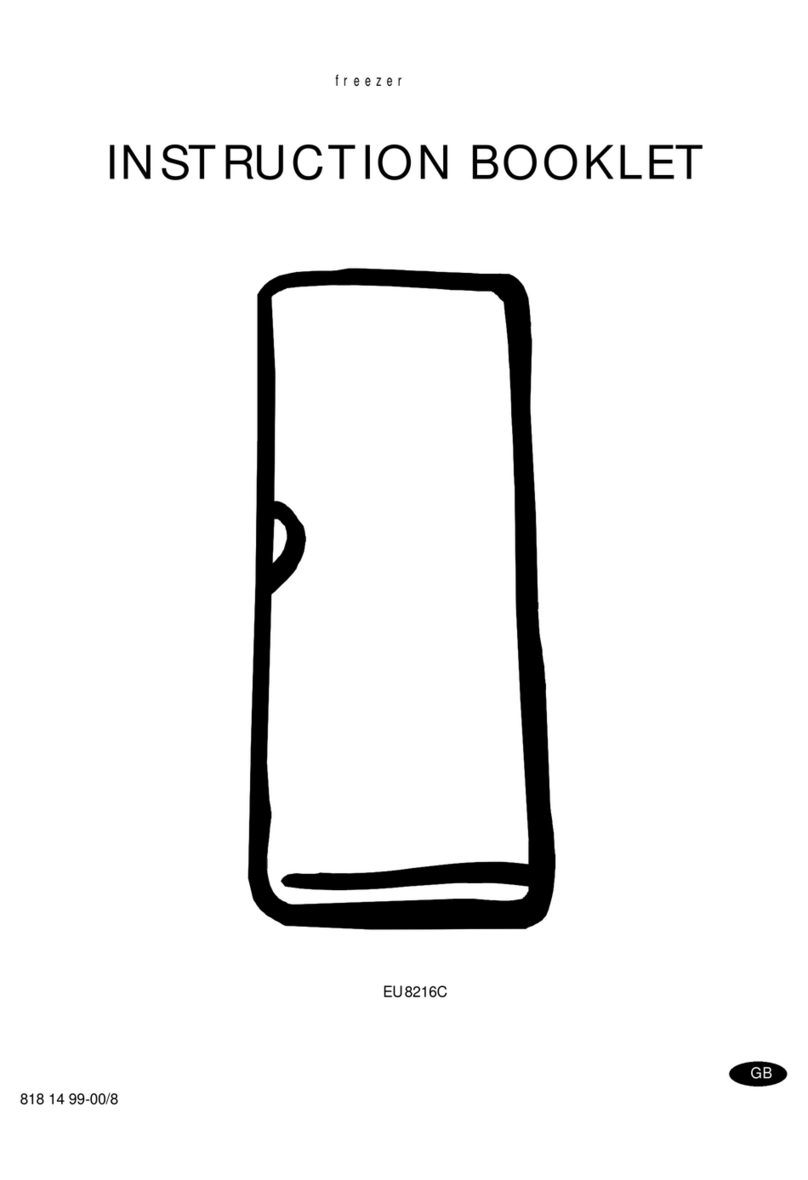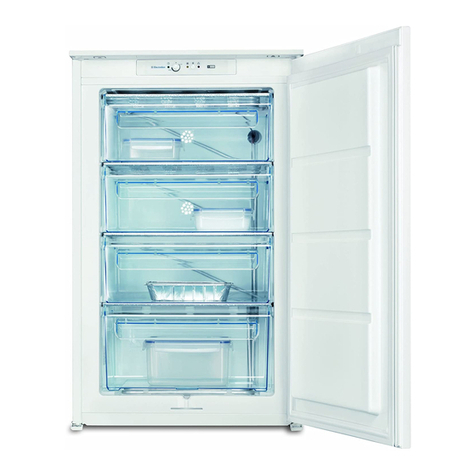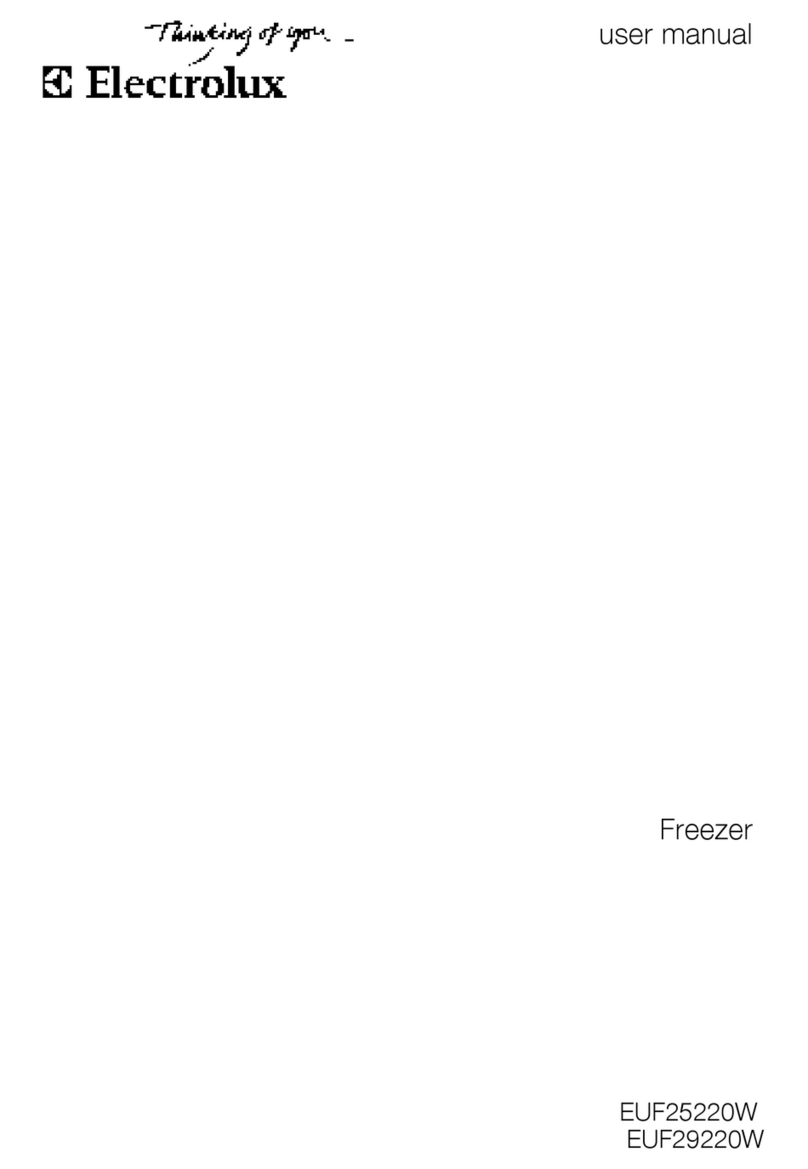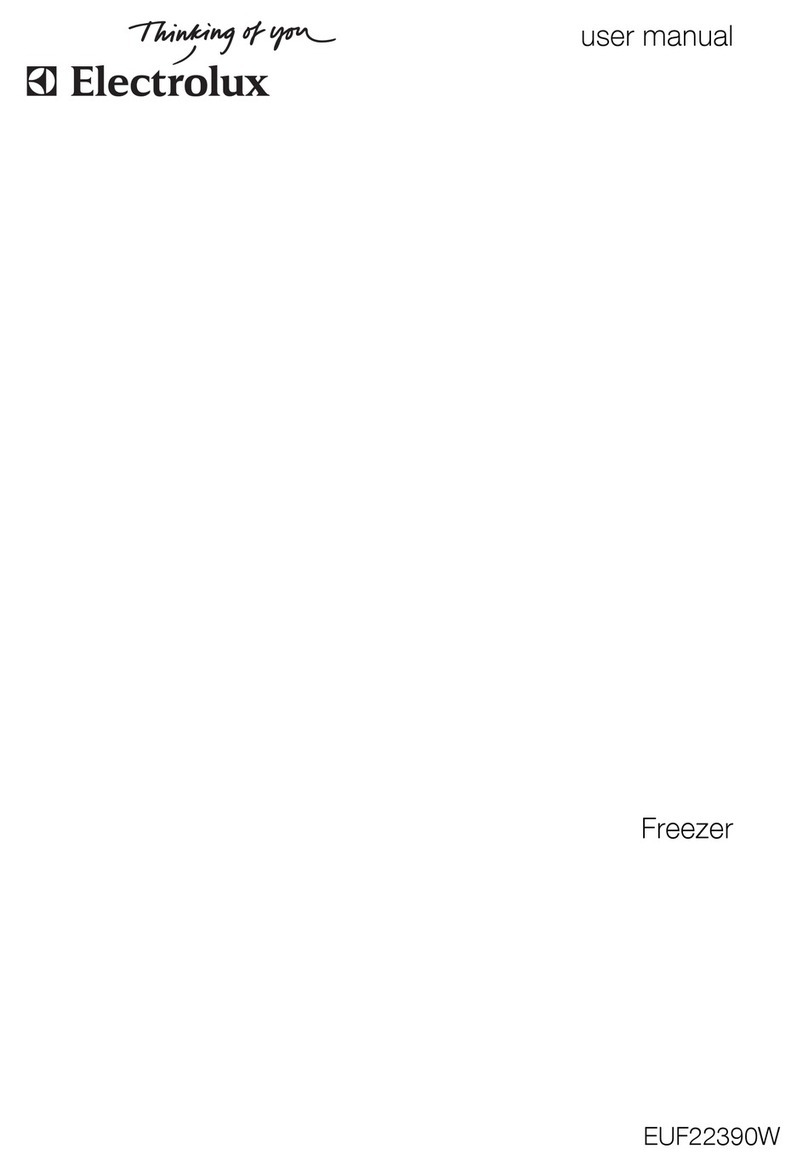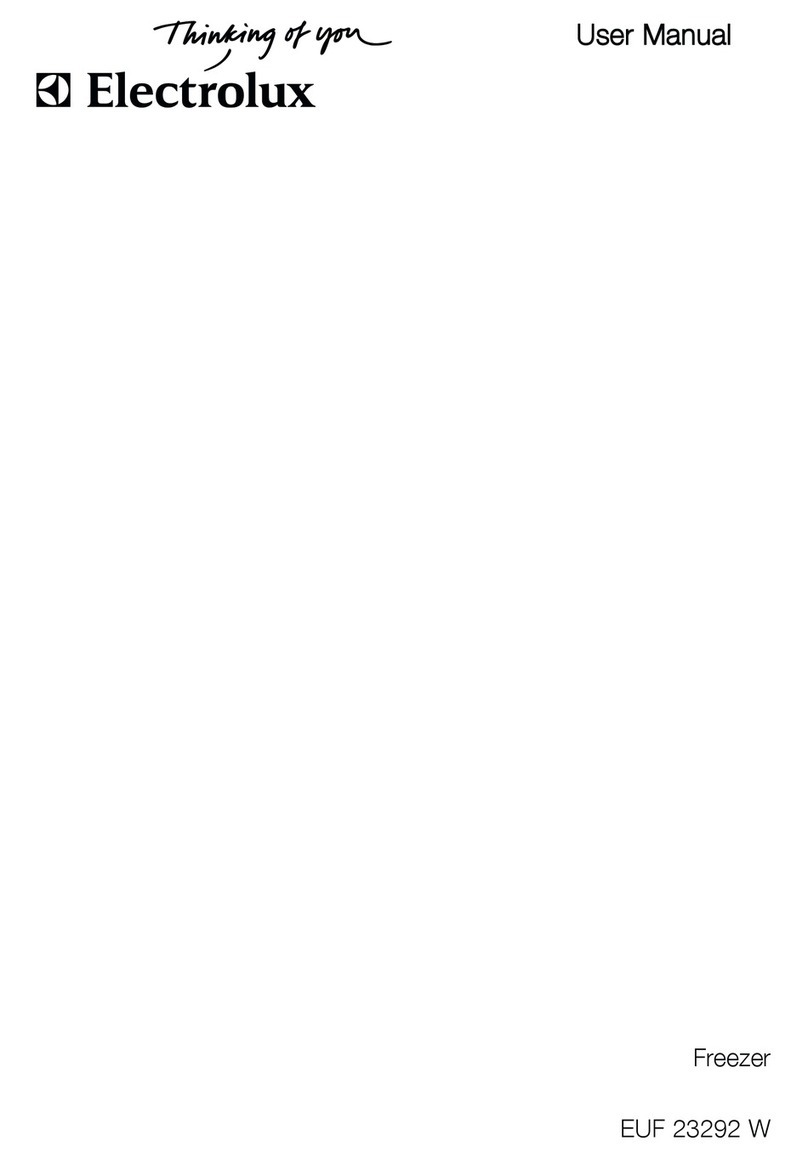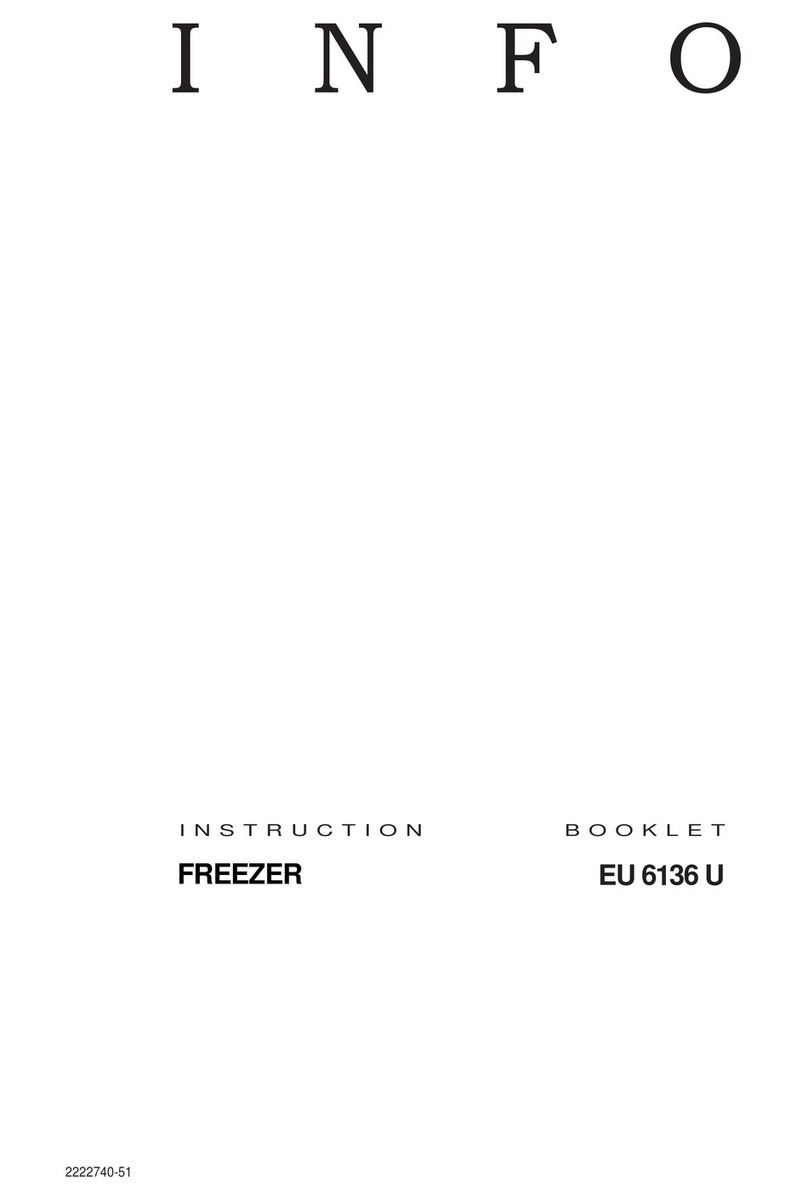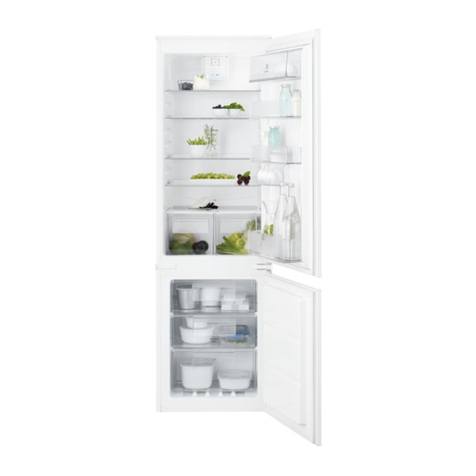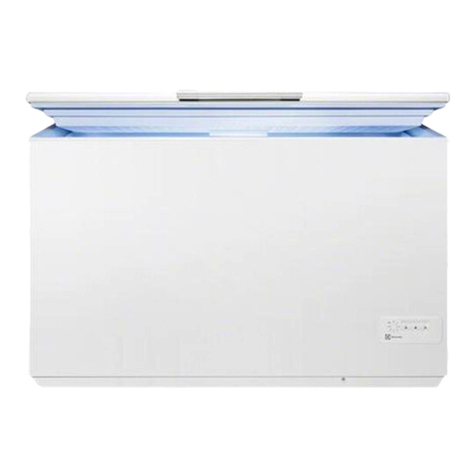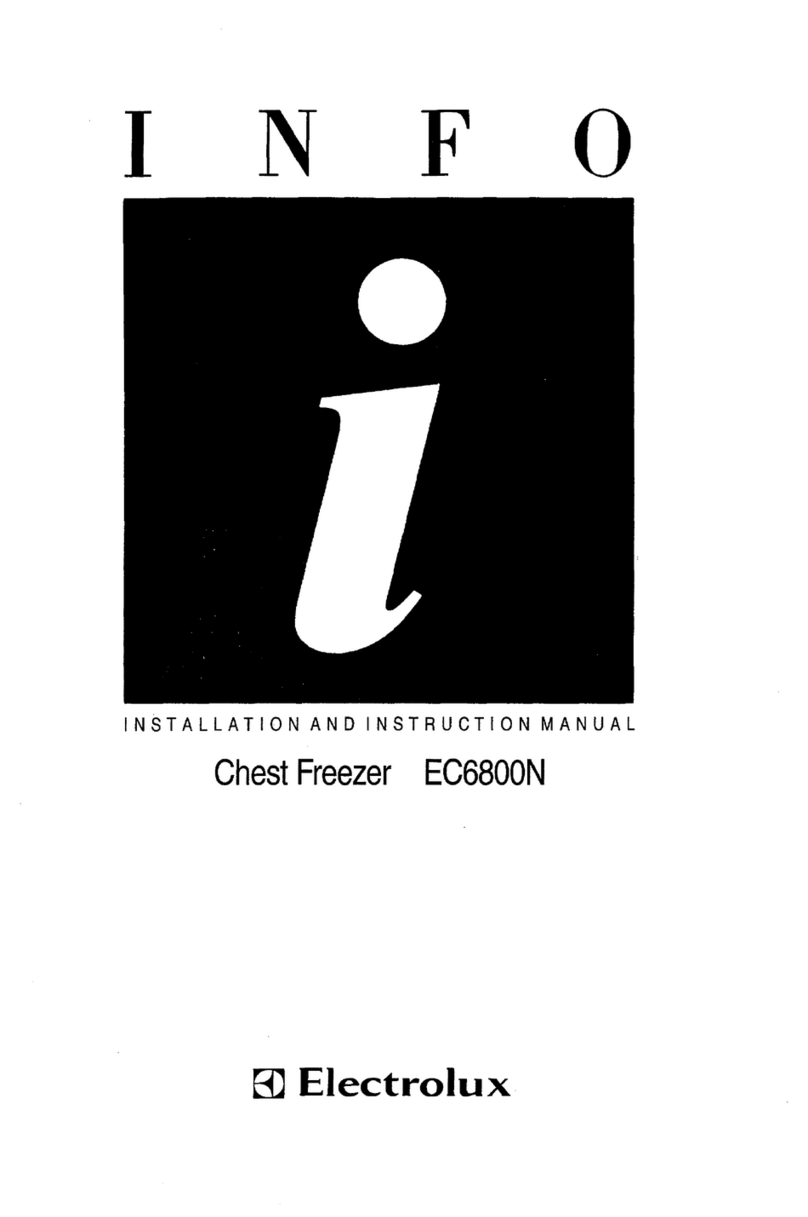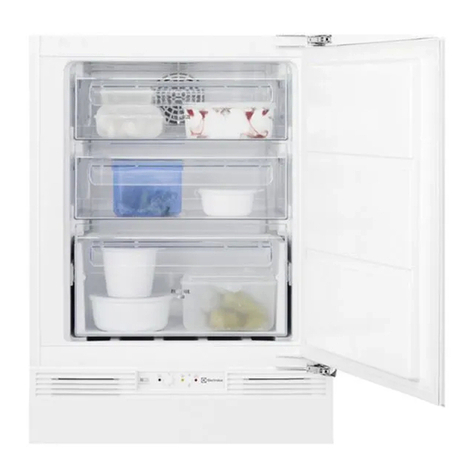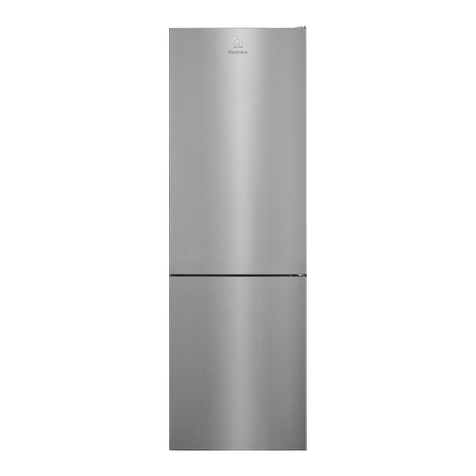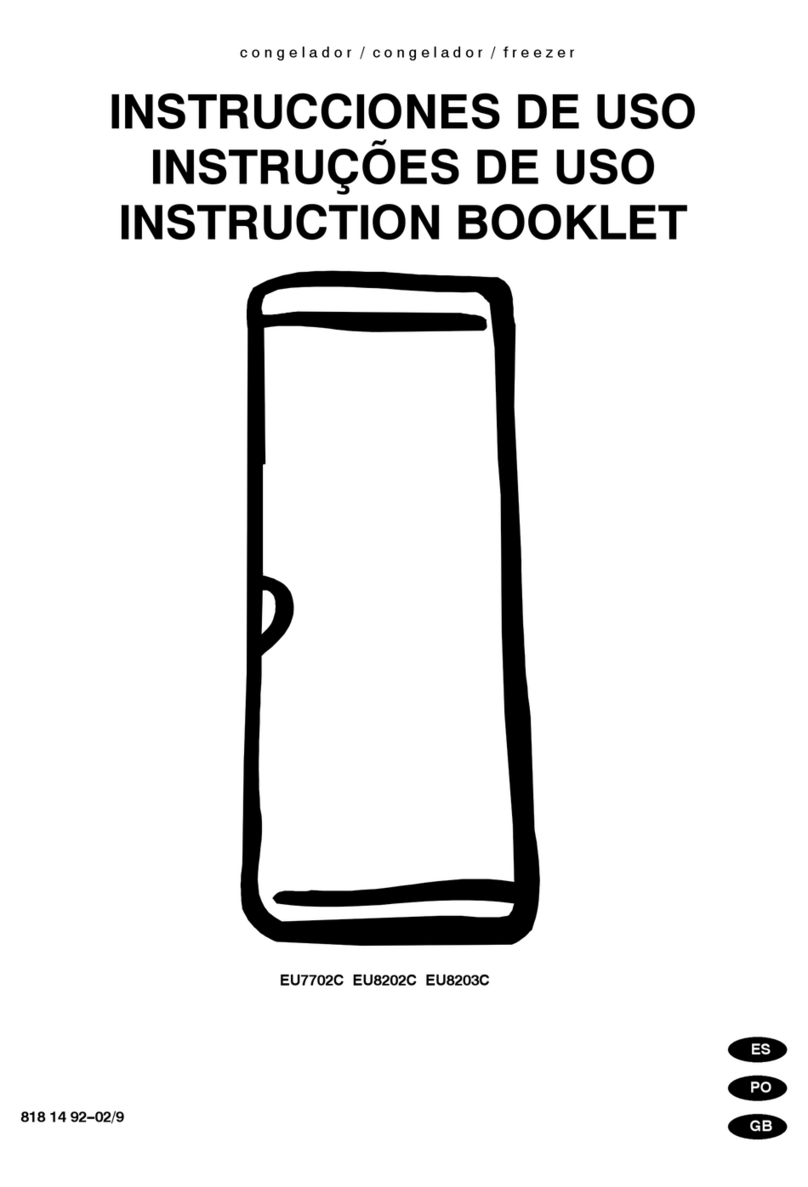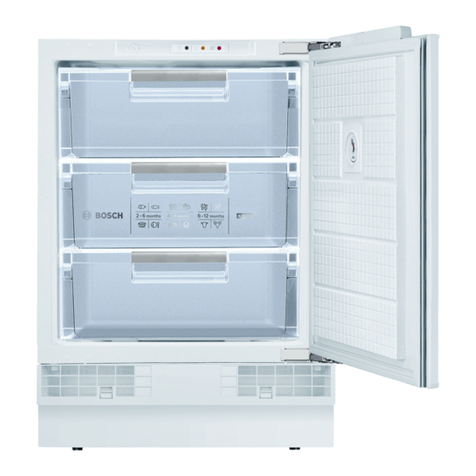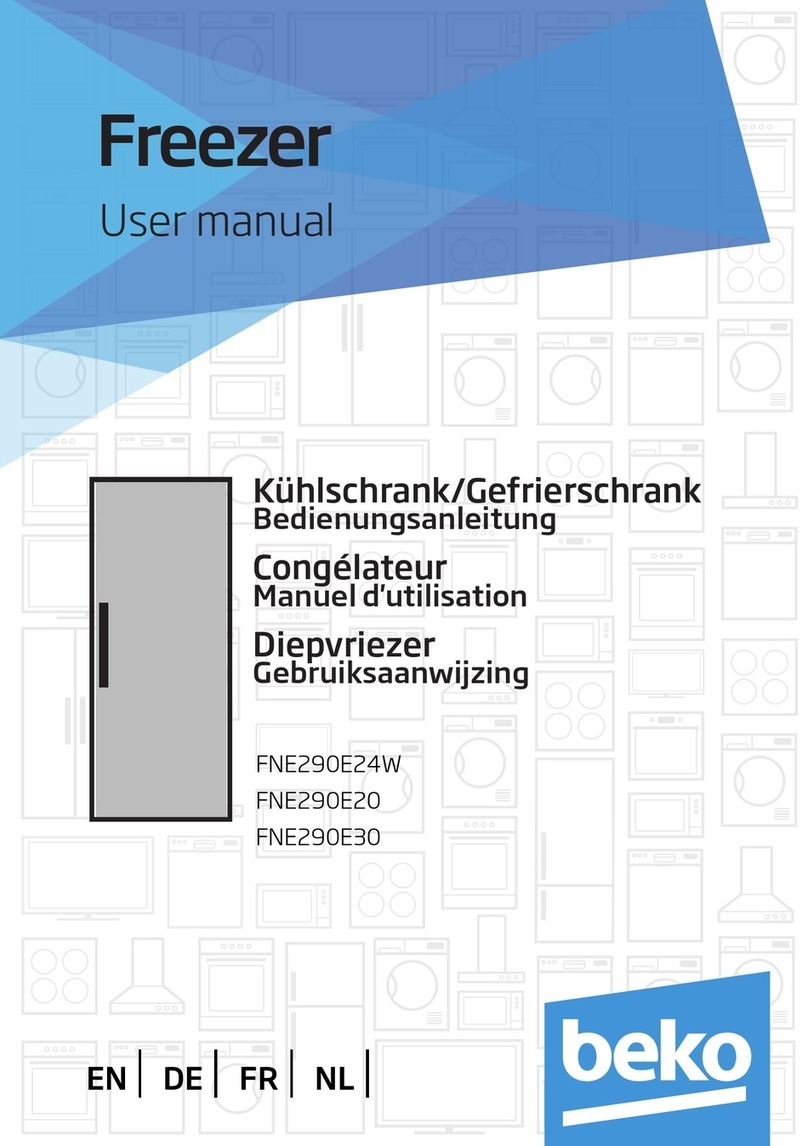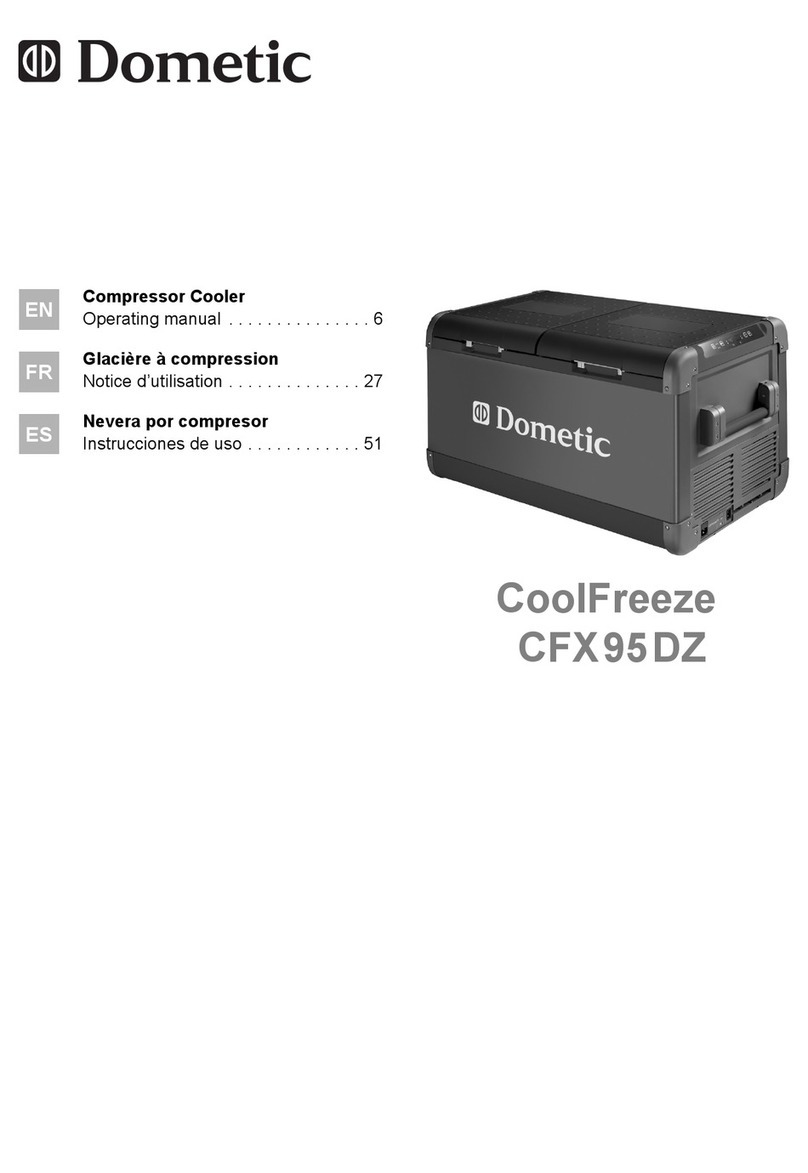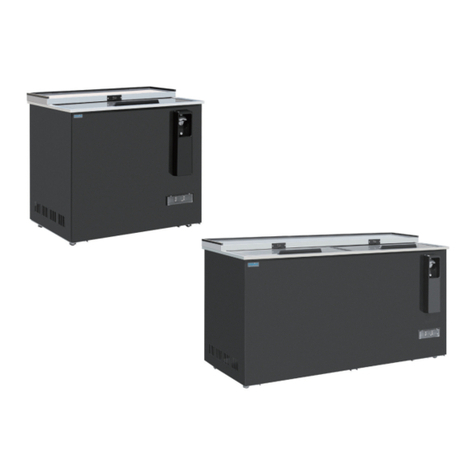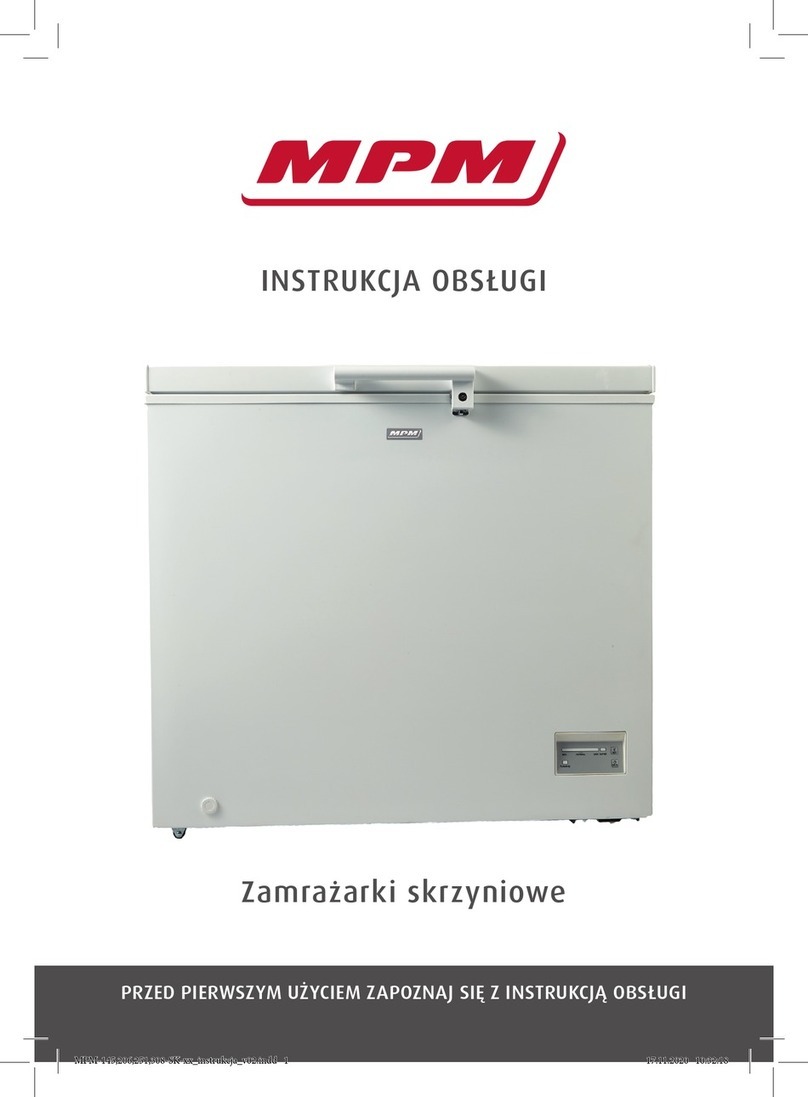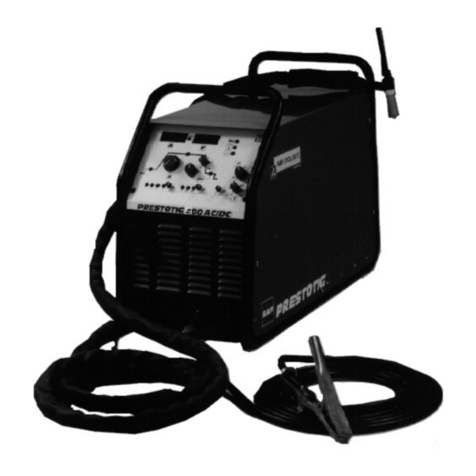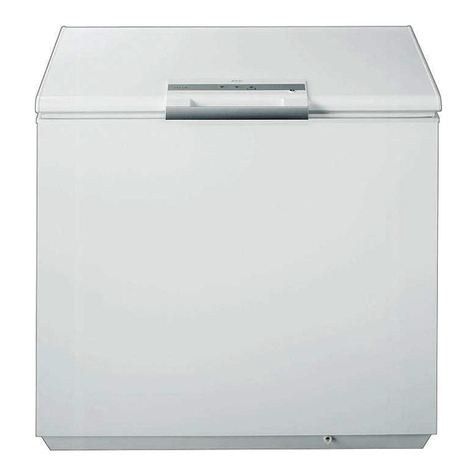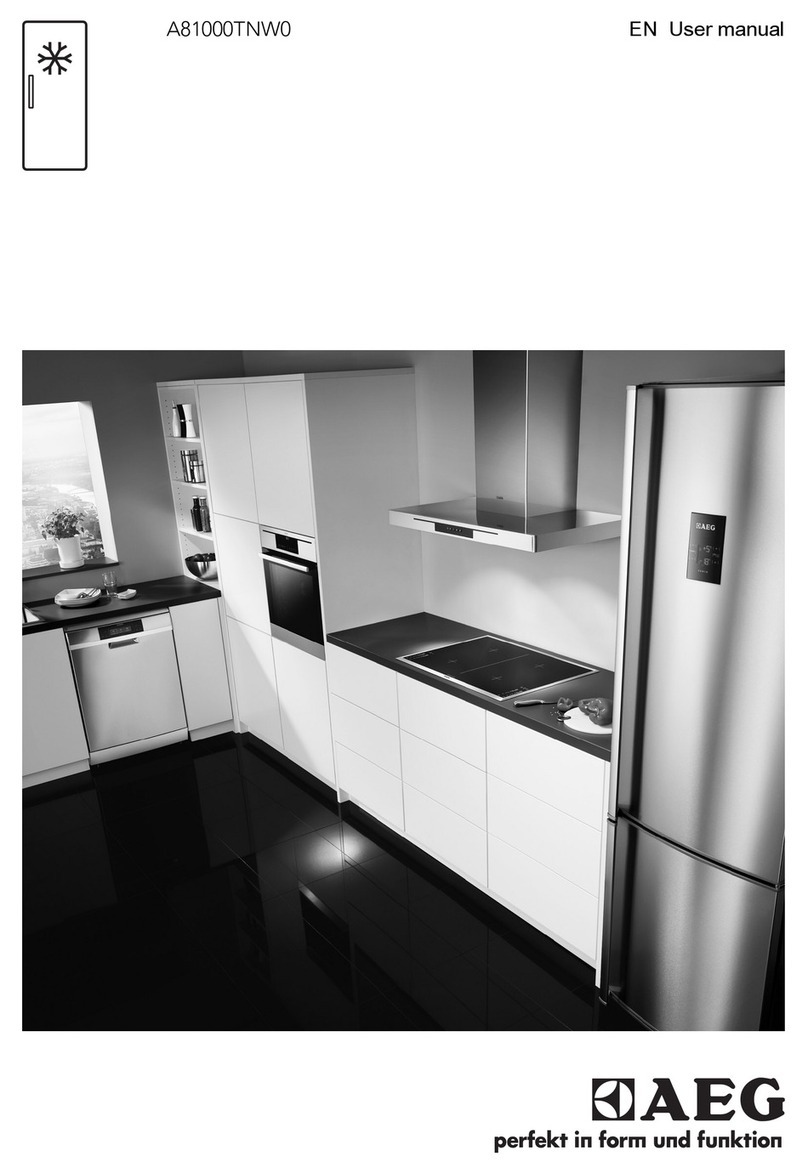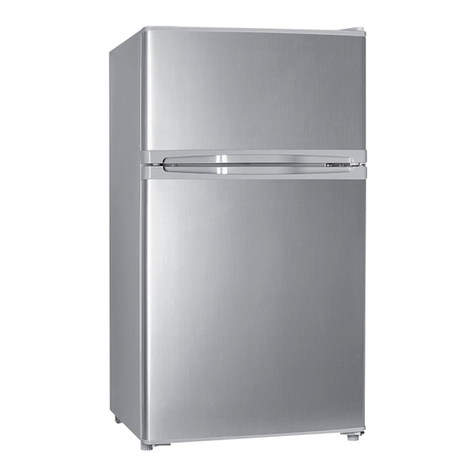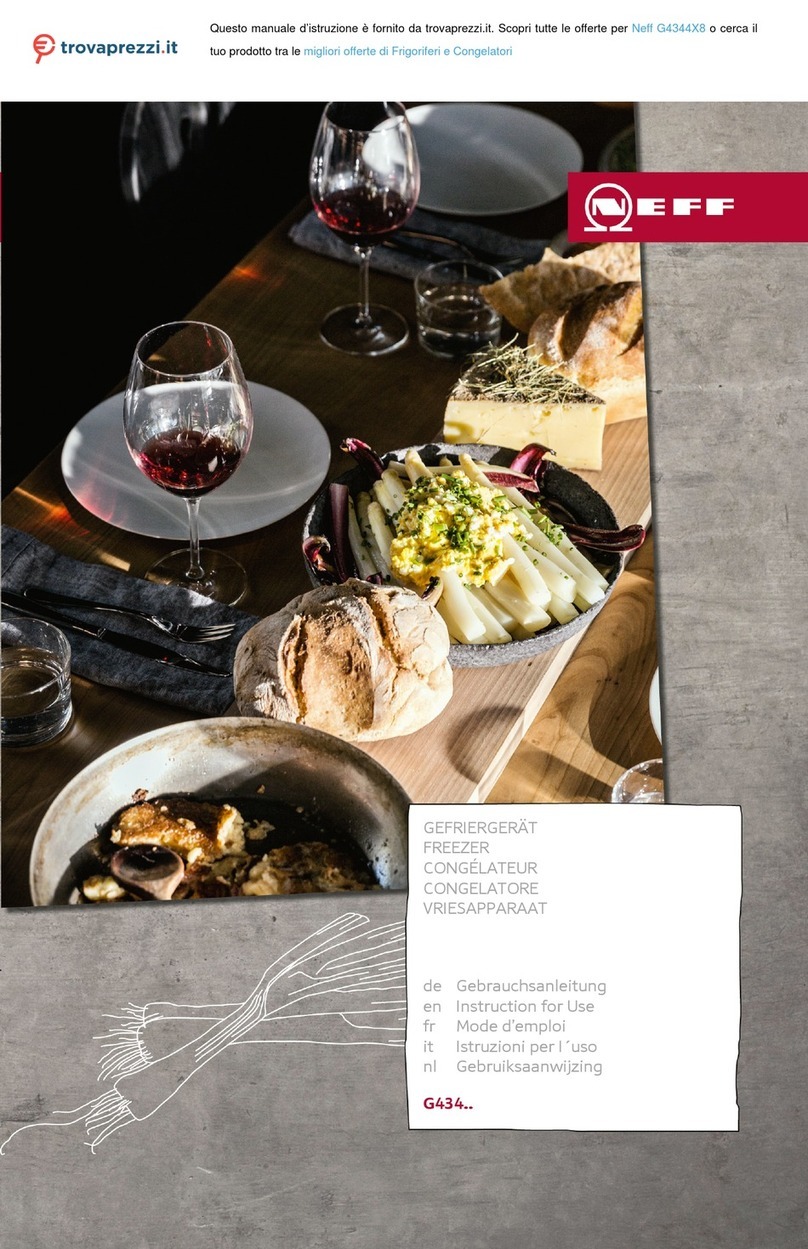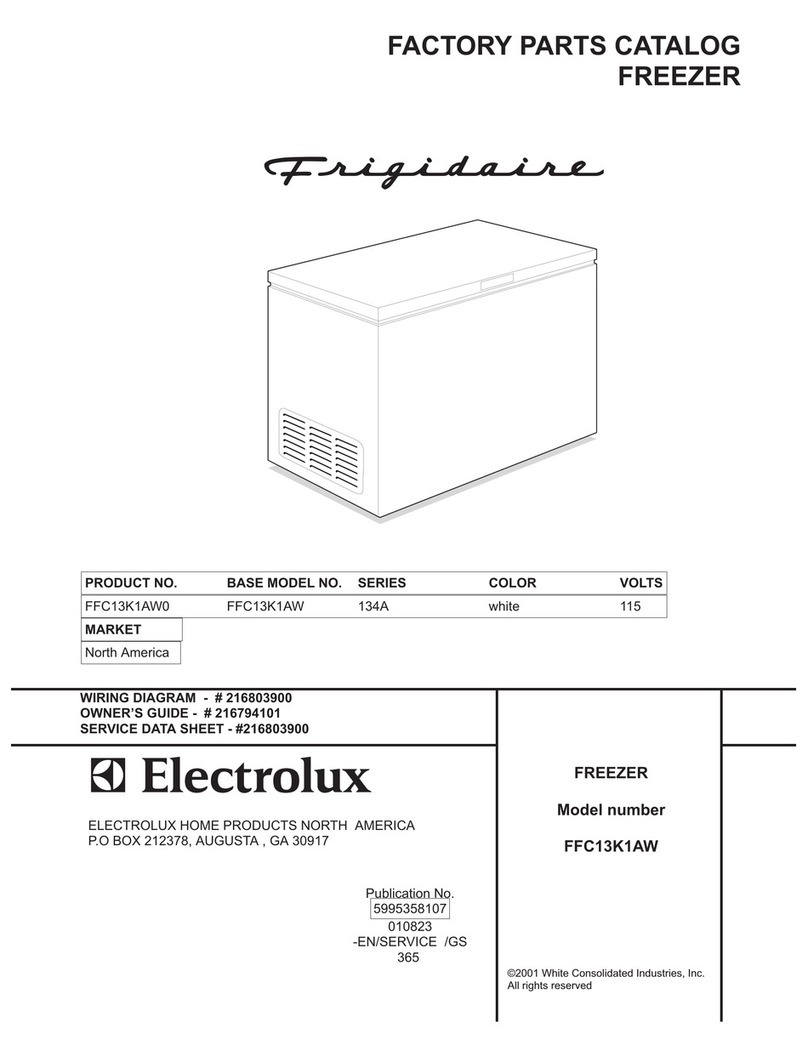2
Prior to Installation
Check the appliance for transport damage. Under no
circumstances should a damaged appliance be
installed. In the event of damage please contact your
retailer.
Installation
This appliance is heavy. Care should be taken when
moving it.
It is dangerous to alter the specifications or attempt
to modify this product in any way.
Ensure that the appliance does not stand on the
electrical supply cable.
Important: If the supply cable is damaged, it must
be replaced by authorised service or qualified
personnel using a special cable of the same type.
Any electrical work required to install this appliance
should be carried out by a qualified electrician or
competent person.
Parts which heat up should not be exposed.
Whenever possible, the back of the appliance
should be close to a wall, but leaving the required
distance for ventilation, as stated in the installation
instructions.
The appliance should be left for 2 hours after
installation before it is turned on, in order to allow
the refrigerant to settle.
Refrigerant
The refrigerant isobutane (R 600a) is contained
within the refrigerant circuit of the appliance, a
natural gas with a high level of environmental
compatibility, which is neverthless flammable.
During transportation and installation of the
appliance, be certain that none of the components
of the refrigerant circuit become damaged.
If the refrigerant circuit should become damaged:
- avoid open flames and sources of ignition.
- thorougly ventilate the room in witch the appliance
is situated.
Child Safety
Do not allow children to tamper with the controls or
play with the product.
There is a risk of suffocation! Keep packaging
material away from children!
General Safety
This appliance contains hydrocarbons in its
cooling unit; maintenance and recharging
must therefore only be carried out by
authorised technicians.
Take utmost care when handling your
appliance so as not to cause any damages to
the cooling unit with consequent possible
fluid leakages.
The appliance must not be located close to
radiators or boilers.
Avoid prolonged exposure of the appliance
to direct sunlight.
Do not use other electrical appliances (such
as ice cream makers) inside of refrigerating
appliances.
During Use
This appliance is designed for domestic use only,
specifically for the storage of edible foodstuffs. It
is not intended for commercial or industrial use.
Containers with flammable gases or liquids can
leak at low temperatures. Do not store any
containers with flammable materials, such as
spray cans, fire extinguisher refill cartridges etc.
in the refrigerator.
Maintenance and Cleaning
Before cleaning, always switch off the appliance
and disconnect from the electrical supply.
When unplugging always pull the plug from the
mains socket, do not pull on the cable.
Servicing
This product should be serviced by an
authorised engineer and only genuine spare
parts should be used.
Under no circumstances should you attempt to
repair the appliance yourself. Repairs carried out
by inexperienced persons may cause injury or
serious malfunctioning. Contact your local
Service Force Centre.
At the end of the Appliance Life
When disposing of your appliance use an
authorised disposal site.
Check with your local Council or Environmental
Health Officer to see if there are facilities in your
area for recycling the appliance.
Remove the plug and ensure that any locks or
catches are removed, to prevent young children
being trapped inside.
IMPORTANT SAFETY INSTRUCTIONS
These warnings are provided in the interests of your safety. Ensure that you understand them all
before installing or using this appliance. Your safety is of paramount importance. If you are unsure
about any of the meanings or these warnings contact the Customer Care Department.

